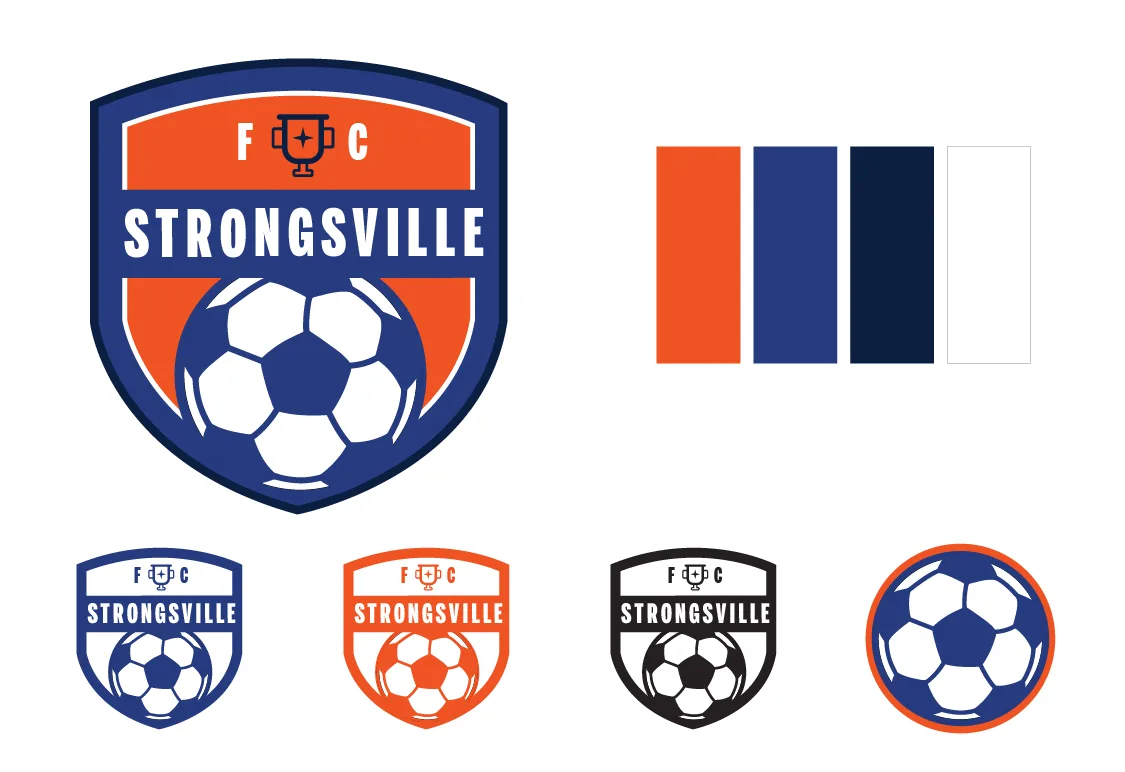
Table of Contents
With over 6.8 million kids playing youth soccer every year, it’s a sport nearly every kid remembers playing growing up.
And while most kids only play soccer at a local level, the most determined young athletes seek to challenge themselves with a higher level of competition and join a travel soccer club.
While starting a travel soccer team may seem like a daunting and time consuming task, the reward of seeing young athletes succeed on a high level can make it all worthwhile. By using our guide below, you can get started on the right track as quickly as possible.
1. Make sure you have the time
Soccer team management isn't an hour-a-week job. Organizers, often volunteers, devote considerable time to planning and attending practices, coordinating and participating in games, attending league meetings, and communicating with parents and players.
Running a youth soccer team requires time, patience, and dedication. Before you dive in, understand that you'll be committing to regular practices, games, organizational meetings, and more.
2. Find somewhere to play
Do a quick Google search in your local area to find potential facilities to host games and to practice in. You may even be able to contact the local school district or parks department in your area and see if they would be willing to let your program use their fields.

Source: Pexels
Different regions have a wide variety of policies for letting private clubs use their facilities, so make sure you do your research to keep costs down in your first season.
3. Find a league to join
Setting up a youth soccer team requires affiliation with a league. Leagues give you structure, organization, rules, and a network of teams to compete against.
Most youth soccer teams are part of larger local, regional, or national leagues. Research the leagues in your area and understand their rules, guidelines, and any affiliation fees. They also often provide resources like game scheduling, referee assigning, and coach training.
Don't have a league with your location and age groups? Maybe you should considering creating your own youth soccer league.
4. Set up a budget
When you're starting a new soccer club, there are a few key costs you should be sure to consider. From registering your club to finding potential sponsors, we’ll cover all of that and more below.
- Uniforms and equipment costs: When looking for youth soccer uniforms and equipment, while you do want to look for equipment that isn’t too expensive, it may be best to spend a few extra dollars to get durable gear that will last for years. This will help save your organization money in the long run. Depending on how many players your club has, equipment and gear could reasonably cost anywhere from $500-$1000.
- Travel expenses: Travel expenses can really vary depending on how often your club is going to travel. From busses, to gas, to food, to lodging, it’s best to plan out your travels in advance so your program doesn’t incur many unplanned expenses.
- Registration with a governing body: Another cost you should be aware of is the fee to register with a governing body such as US Youth Soccer. These fees generally cost around $150 per year to register both your club and players.
5. Create a brand
Creating a logo can be a lot of fun for your program, and it doesn't have to be tough. You'll want to get a quality logo that you can use for at least your first few seasons.
Your logo should have at least one color version and at least one black and white version. The logo variations will be a big help with uniform, apparel, and website design options in the future.
You can use services online like Fiverr to get a professional logo created for you for around $100. In the end, creating a strong brand will build some credibility with potential coaches, parents, and players.

6. Create a sports website
Launching a youth sports website can be an effective way for your soccer club to promote your teams, register players, manage payments, and communicate throughout your season. A website can also help with your Google Search Results, which can come in handy when parents are researching soccer programs in your area online.

Using Jersey Watch’s sports website builder, you can easily:
- Create a professional looking, mobile-friendly website without coding knowledge.
- Customize your soccer website with your team colors and logo.
- Post schedules for games, practices, and other events.
- Send out email or text notifications directly from the platform.
- Post news, blog updates, photos, and videos to engage your team's community.
Jersey Watch combines website creation, team management, and communication all into one sports management platform. Managing everything in one place saves administrators a ton of time and effort to run your soccer team.
📚 Learn: How to Make a Youth Soccer Website
7. Recruit players and volunteers
Players
After setting up your club infrastructure, the next order of business is to recruit and register the best players. Use these tips to help get a head start.
- Building relationships with local schools and leagues: Reaching out to your high school soccer teams and youth clubs can be a great way to recruit new players to your program. Just be sure to focus on building strong relationships with these schools and clubs so they can help serve as a potential pipeline of athletes for the foreseeable future.
- Ask your local high school coach: Coaches for a middle school or varsity team can be an amazing resource when it comes to recruiting more players to your club. Oftentimes, players on their own high school teams may have siblings who would love to dip their feet in the travel soccer world and would likely love to help your program get started. Just like with the local schools and youth clubs, just be sure to focus on building a meaningful and long lasting relationship and don’t underestimate the influence these coaches can have on your program.
- Host a free soccer clinic or tournament: Hosting a free clinic is one of the best ways to introduce new players to your club and coaching staff. Set a date and ask your local schools, rec leagues, or coaches for help in spreading the word! You can also advertise this online via your social media and website. Just be sure to pass out contact forms so you can connect with the players and their families after your clinic.
Once you build some credibility with your community, organize a tryout for your soccer team. Plan and advertise a registration period and, if your team is selective, a date for the soccer tryouts. Be clear on what paperwork is required (like birth certificates and medical forms) and any fees involved.

Source: Pexels
Your tryouts should ensure potential players are good with a soccer ball. It should assess critical soccer drills like dribbling, passing, ball control, and acting as goalkeeper. You can even host a scrimmage during tryouts to see how athletes hustle in a real(ish) soccer match, and if they are a team player or not.
Volunteers
Finding good coaches and volunteers can be critical to your success as a soccer club. Therefore, it’s very important you inform them of exactly what they’re signing up for so both parties can know they are committed to the common goal of running a successful travel soccer club.
- Parents and grandparents: Getting parents involved early on in your program can be very helpful as most parents will likely already be at the games as it is. A lot of parents would also be likely to jump at any opportunity to help their kids learn how to play the sport the right way and would love to be the ones to teach them how.
- Former coaches: Former high school or middle school soccer coaches can be a great resource. They have a lot of experience and are likely itching to get back into coaching the sport they love. They can bring excellent training sessions, teach kids about hard work, and genuinely improve their soccer skills.
- Former or current players: Former and current players, whether on the high school or collegiate level, can be excellent resources for either coaches or volunteers. Just like former coaches, they have a lot of experience, and younger athletes look up to older players and use them as inspiration to help reach their goals.
You'll need a coach who is not only knowledgeable about soccer but also has a positive attitude and a good rapport with kids. Depending on the level of play, they might need certain certifications. Don't forget other roles like an assistant coach, a manager/administrator, and potentially a treasurer if handling club team finances.
8. Sign up players
Next up is registering young athletes. You can set up an online soccer registration form for players, making it easier to join your team or league. This makes it super easy to manage sign-ups each season, and provides a hassle-free experience for parents.
Jersey Watch lets you accept payments online when players register, which simplifies the collection process. The platform supports secure transactions, giving users confidence in the safety of their financial information.
9. Get insurance
Insurance is often overlooked, but it is important for making a youth soccer team because it keeps everyone safe. Injuries can and do occur, and with insurance, the financial repercussions can be big for both families and the club.
Your insurance policy should cover general liability and accidents, in case a player is injured during a game, practice, or event. Shop around and compare different providers and ensure you’re getting the coverage you need.
10. Find sponsors
One way your program can generate revenue outside of player registration is by finding sponsors for your travel soccer club. Local businesses and even national companies love to support youth sports. In fact, businesses can get a ton of value from youth sports sponsorships, with studies having shown that 84% of parents remember brands that sponsor youth sports. So don’t be afraid to pitch sponsoring your club to businesses!

When planning out your program you should be sure to consider all costs associated with running a local or travel soccer program so you can ensure it will have enough funding to cover multiple seasons.
One of the biggest factors that separates a successful club from one that may only last a season is proper soccer fundraising and budgeting strategy.
Create your local or travel soccer team today
Starting a travel or local soccer program doesn’t have to be a tough process. While it takes time and determination, by starting small in the first few years and not biting off more than you can chew, you can ensure your program will be built for success in the long haul.